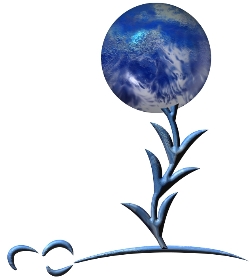|
Here we created a workshop for you about communication, differences and similarities, and how to live together in a friendly and peaceful world.
 We provided some suggestions for considerations and conversations which you can use to find solutions for interpersonal challenges and for improving your team work. And beside that you might find some answers to international issues. We provided some suggestions for considerations and conversations which you can use to find solutions for interpersonal challenges and for improving your team work. And beside that you might find some answers to international issues.
You can use this workshop for yourself. And it will be even much more effective when you discuss the questions with a group of people, your family, colleagues, and politicians!
If you want us to come around and help you doing it or do it for you, please contact us! (Yes, we can do that in German as well.)
Workshop:
Create the world you would like to live in
Participants:
This program is used for schools, businesses, families, politicians, and other groups as well.
We discussed these questions with children from age 6 to 94 years old. Even the youngest understood the advantages and methods of friendly behaviour, sometimes is an adjustment in verbalisation and timing helpful.
The time you need
The time you need depends on the intensity and quality of the results you would like to get. You could choose an abstract of the questions and start with 15 minutes.
And you can decide to expand it to a program for week or longer. Then you have time to include games, more knowledge, artwork and much more fun at this topic and your long running results will be even much better.
At the end you will find out that you save a lot of time through a more friendly, peaceful and effective co-operation!
Above all, the questions and answers will be most valuable if you keep them in mind and adjust them to your group and situation!
|
To set the stage for a discussion like this:
|
Provide a friendly surrounding. Everybody of the group is welcome to speak his/her mind. Listen to each other. New ideas are great! Ideas don’t have to be good right away. Sometimes the combination of two bad ideas makes a great one. So every idea should be paid attention to respectfully. One of the group should take care of the correct order of the request to speak. It’s helpful to note catchwords. Some volunteers could do that.
|
Topics of the Workshop:
 Friendliness and Communication: Friendliness and Communication:
What is friendliness? Which advantages does gentleness bring? How can you be friendly to others? How can you be gracious to yourself? What is unfriendliness? Can you be ‘unfriendly’ to others? (Sometimes that can be important if you are 8 years old and someone asks you to get in his car or something like that.) If you have been unfriendly to a person or yourself by mistake, how do you be in a good mood again? And what do you do to settle a difference?
top
 Smile: Smile:
What is a friendly smile? Which influence does a true smile have on yourself? Which influence does a true smile have on an observer? Why is smiling international? Why is smiling healthy?
top
 Freedom of opinion: Freedom of opinion:
Does everybody have to be of the same opinion? What can you do if you have another opinion than someone else? What are compromises? How can you find compromises? What is a good argument / reason and what is an unproductive one? How do you bring forward a good argument?
top
 Your Rules: Your Rules:
Which rules do you like to have for yourself and other people? How can you agree on some rules with others? How could you make people observe these rules? What do you do if someone does not observe these rules? Which advantages do your rules bring for yourself and the others?
top
 Peace: Peace:
What is peace? Which advantages does peace bring? What is war? Where is peace? Where is war? Which are the steps between peace and war? How could you get from war to peace?
top
 People around the world: People around the world:
What do all people have in common? Which differences do people have? Why are people different? Why do people look different? Why do people speak different languages? Why can you find much more friends if you speak more languages? Which are the basic needs and wishes of people around the world? Why are friendly people in each country? Which cultures and religions do you know? Which similarities do different cultures and religions have? Which countries do you know? Which similarities do different countries have? Which political systems do you know? Which similarities do different political systems have?
top
|

